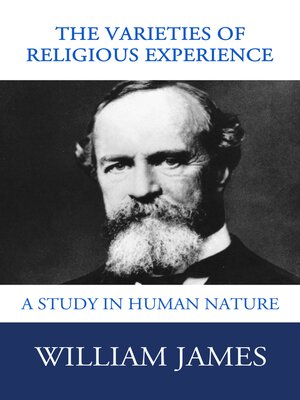
Sign up to save your library
With an OverDrive account, you can save your favorite libraries for at-a-glance information about availability. Find out more about OverDrive accounts.
Find this title in Libby, the library reading app by OverDrive.



Search for a digital library with this title
Title found at these libraries:
| Library Name | Distance |
|---|---|
| Loading... |
In the matter of religions it is particularly easy to distinguish the two orders of question. Every religious phenomenon has its history and its derivation from natural antecedents. What is nowadays called the higher criticism of the Bible is only a study of the Bible from this existential point of view, neglected too much by the earlier church. Under just what biographic conditions did the sacred writers bring forth their various contributions to the holy volume? And what had they exactly in their several individual minds, when they delivered their utterances? These are manifestly questions of historical fact, and one does not see how the answer to them can decide offhand the still further question: of what use should such a volume, with its manner of coming into existence so defined, be to us as a guide to life and a revelation? To answer this other question we must have already in our mind some sort of a general theory as to what the peculiarities in a thing should be which give it value for purposes of revelation; and this theory itself would be what I just called a spiritual judgment. Combining it with our existential judgment, we might indeed deduce another spiritual judgment as to the Bible's worth. Thus if our theory of revelation-value were to affirm that any book, to possess it, must have been composed automatically or not by the free caprice of the writer, or that it must exhibit no scientific and historic errors and express no local or personal passions, the Bible would probably fare ill at our hands. But if, on the other hand, our theory should allow that a book may well be a revelation in spite of errors and passions and deliberate human composition, if only it be a true record of the inner experiences of great-souled persons wrestling with the crises of their fate, then the verdict would be much more favorable. You see that the existential facts by themselves are insufficient for determining the value; and the best adepts of the higher criticism accordingly never confound the existential with the spiritual problem. With the same conclusions of fact before them, some take one view, and some another, of the Bible's value as a revelation, according as their spiritual judgment as to the foundation of values differs.







